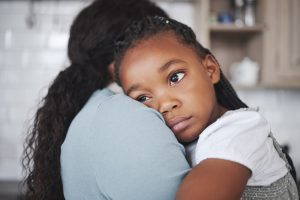The loss of a child is an unimaginable tragedy that plunges parents into profound grief. This article explores the multifaceted journey of bereavement, offering insights into the grieving process, the role of faith, and the importance of support systems. It serves as a guide to help bereaved parents find solace, navigate their relationships, and ultimately foster resilience and hope for the future. Many parents who lose become lost and need counseling again to find meaning to the loss and incorporate it into life. Certified grief counselors can help with non pathological issues while licensed and certified grief counselors can help parents with more serious issues. Regardless, child loss (adult or young) is considered the most extreme grief loss that exists and most require deeper counseling and many years to finally accept the loss and incorporate it. This involves many days of emotional outpouring, anger, temporary loss of faith, possible family breakups and a multitude of other secondary losses. To help grieving parents as a certified grief counselor, then please review AIHCP’s Grief Counseling Certification
Key Takeaways
- Understanding the stages of grief and the emotional impact helps parents to acknowledge and cope with their loss over time.
- Faith and spirituality can be vital sources of comfort and resilience, providing a framework for understanding and enduring the pain.
- The dynamics of marital and family relationships can shift significantly after a child’s loss, requiring open communication and mutual support.
- Creating memorials and engaging in legacy projects can offer therapeutic benefits and help parents honor their child’s memory.
- Professional support, such as counseling and support groups, plays a crucial role in helping bereaved parents navigate their grief journey.
Understanding the Grieving Process After Child Loss

Stages of Grief in Bereaved Parents
The loss of a child is an incomprehensible tragedy that thrusts parents into a complex grieving process. This process is often characterized by a series of emotional stages that, while not linear, provide a framework for understanding the myriad of feelings that bereaved parents endure. The stages of grief, as conceptualized by Elisabeth K”ubler-Ross, include denial, anger, bargaining, depression, and acceptance. Each stage represents a different response to the loss, and parents may oscillate between stages or experience them simultaneously.
- Denial serves as a temporary defense mechanism, often manifesting as shock or disbelief.
- Anger may be directed towards oneself, others, or even the circumstances surrounding the loss.
- Bargaining reflects a desire to negotiate a way out of the pain, accompanied by ‘what if’ and ‘if only’ statements.
- Depression signifies the deep sorrow and emptiness felt in the wake of the child’s absence.
- Acceptance, while not indicative of happiness, represents a gradual coming to terms with the new reality.
It is crucial to recognize that these stages are not prescriptive; they are descriptive of common patterns observed in grief. Each parent’s journey is unique, and the duration and intensity of each stage can vary widely. The acknowledgment of these stages can serve as a guide for parents and those supporting them, providing a language to articulate their experiences and a lens through which to view their emotional landscape.
Emotional and Psychological Impact
The emotional and psychological impact of losing a child is profound and far-reaching. Parents may experience a range of mental health issues, including depression, anxiety, and post-traumatic stress disorder (PTSD). These conditions can persist for years, altering the very fabric of a parent’s well-being.
The loss is all-encompassing, casting a shadow over every aspect of life, where hope seems distant and joy feels like a distant memory.
The journey through grief is marked by various stages, each with its own set of challenges. Parents often grapple with intense emotions such as:
- Anger
- Guilt
- Profound sadness
- A sense of emptiness
These feelings can disrupt daily life, affecting relationships, work, and the ability to engage in previously enjoyed activities. The pain of loss cuts deep, leaving scars that may never fully heal, and every waking moment can be filled with a deep sense of loss, a void that cannot be filled.
The Role of Time in Healing
The journey through grief after the loss of a child is deeply personal and varies greatly among individuals. Time does not heal all wounds, but it does provide the space for healing to occur. It is a gradual process that unfolds in its own rhythm, without a prescribed timeline. The notion that healing happens gradually and cannot be forced resonates with the understanding that grief is a complex and non-linear experience.
The passage of time allows for the emergence of new coping mechanisms and the gradual acceptance of loss. It is a period of adjustment where bereaved parents learn to integrate the reality of their child’s absence into their lives.
While some parents may begin to find solace within weeks or months, others may take years to reconcile with their loss. This variability underscores the importance of patience and self-compassion during the grieving process. The table below illustrates the diversity in the duration of grief among bereaved parents:
| Timeframe | Percentage of Parents |
|---|---|
| < 6 months | 10% |
| 6-12 months | 20% |
| 1-2 years | 30% |
| > 2 years | 40% |
These figures are not meant to set expectations but to highlight that each person’s journey is unique and should be honored as such.
The Role of Faith and Spirituality in Coping with Loss

Seeking Comfort in Prayer
In the wake of child loss, parents often turn to prayer as a means of solace and support. Prayer serves as a spiritual sanctuary, offering a private space for the expression of grief and the search for comfort. It acts as a conduit for the complex emotions that accompany bereavement, allowing individuals to communicate their pain and seek understanding in a higher power.
Prayer can be particularly potent as it taps into the deep reservoirs of faith, providing a sense of connection and hope. For many, it is a practice that brings a measure of peace in the midst of turmoil:
- It wraps the sorrow and despair, offering consolation.
- It roots individuals in faith, giving strength to withstand adversity.
- It serves as a reminder that they are not alone in their journey of grief.
The strength derived from prayer is like the sturdy trunk of a tree, providing stability amidst the stormy waves of grief.
Prayer also functions as a means of honoring the memory of the lost child, as well as a way to articulate the often inexpressible feelings of loss. The title ‘Why, Lord?’ is an appropriate invocation for grieving parents, encapsulating the profound questioning and search for meaning that follows the death of a child.
Religious Practices and Bereavement Support
Religious practices offer a framework for bereaved parents to express their sorrow and seek solace within a community of faith. These rituals and customs provide a sense of continuity and stability during a time when life seems most chaotic. For many, participating in religious ceremonies or adhering to spiritual traditions can act as a bridge between the pain of loss and the journey toward healing.
The communal aspect of religious practices is particularly significant. It allows parents to feel less isolated in their grief as they connect with others who share similar beliefs and experiences.
- Acceptance of divine will and seeking peace through prayer are central to coping with the loss of a child.
- Religious communities often extend care beyond immediate family, recognizing the collective nature of mourning.
- Spiritual guidance can prepare parents for the long and unpredictable path of grief, offering resilience and hope.
The integration of faith into the grieving process can be a powerful tool for parents grappling with the loss of a child. It is not only about the personal solace found in prayer but also about the support and understanding that comes from being part of a religious community.
Spiritual Resilience and Recovery
In the aftermath of child loss, parents often seek a foundation upon which to rebuild their shattered lives. Spiritual resilience emerges as a cornerstone for many, providing a sense of continuity and hope. This resilience is not a quick fix but a gradual process, akin to the regrowth of a forest after a wildfire. It involves a deep connection with one’s faith, a steadfast belief in a higher power, and the utilization of spiritual practices to foster healing and recovery.
The journey towards spiritual resilience may include several key elements:
- Embracing spiritual beliefs as a source of comfort and strength
- Engaging in religious or spiritual rituals to honor the memory of the child
- Finding solace in the community and support from faith-based groups
- Reflecting on spiritual teachings that offer perspectives on suffering and the afterlife
While the path to spiritual resilience is deeply personal, it is also marked by common milestones. Bereaved parents often report a renewed sense of purpose and a redefined understanding of their own spirituality as they navigate their grief. It is important to recognize that this process is not linear and may ebb and flow with time.
Navigating Marital and Partnership Dynamics Post-Loss

Challenges in the Marital Relationship
The loss of a child can precipitate a profound identity shift within a marital relationship, often leading to an increased focus on marital issues. Couples may find themselves navigating an ’empty nest syndrome’ prematurely, which can create feelings of uncertainty and may lead to questioning the purpose and direction of their marriage. This period of adjustment is marked by a need for mutual support and understanding as each partner grieves differently.
- Communication becomes paramount in maintaining a healthy relationship post-loss.
- It is essential to recognize and respect the individual grieving processes.
- Finding common ground and shared rituals can help in coping with the loss together.
Allow us to lean on each other and to find solace in each other’s presence. Give us the wisdom to know when we need to be alone, and when we need to be together.
While prayer and spiritual practices can offer solace, they may not resonate with every couple, particularly where beliefs differ or in the case of single parents. The challenges faced are multifaceted and require a compassionate approach that acknowledges the unique dynamics of each relationship.
Communication and Emotional Support
In the wake of child loss, communication becomes a pivotal element in the support system for bereaved parents. It is through the exchange of words and emotions that couples can begin to understand and process their shared grief. Open dialogue allows for the expression of individual pain, but also for the sharing of memories and experiences that honor the lost child.
Effective communication can take many forms, from verbal exchanges to written notes or even shared silence. Each couple may find different methods suitable for their unique situation. However, the goal remains the same: to provide a safe space where feelings can be acknowledged and validated.
- Encourage open and honest dialogue without fear of judgment.
- Listen actively and offer empathy, not solutions.
- Recognize and respect that each partner may grieve differently.
- Use written communication if verbal conversation is too difficult.
In this journey of grief, it is crucial for partners to remain connected, offering each other the emotional support needed to navigate the turbulent waters of loss. By maintaining a line of communication, they can help each other find a path toward healing, even in the midst of sorrow.
Strengthening Bonds in the Wake of Tragedy
The loss of a child is an unparalleled tragedy that can either fracture or fortify the bonds between partners. In the aftermath, couples often find themselves navigating a complex emotional landscape, where the shared sorrow can become a source of deep connection or a dividing chasm. It is essential for bereaved parents to actively engage in open communication and mutual support to strengthen their relationship.
- Open communication allows for the sharing of grief and the expression of individual needs.
- Mutual support provides a foundation for understanding and empathy, crucial for healing.
- Joint activities, such as creating a memorial, can serve as a therapeutic process and a means to honor the child’s memory together.
While the journey through grief is personal and unique, the concept of ‘continuing bonds’ offers a framework for understanding how relationships with the deceased can evolve and integrate into ongoing lives.
The delicate balance of maintaining individual grieving processes while supporting each other is vital. It requires patience, compassion, and often, the willingness to seek external support or counseling. By nurturing their partnership through this harrowing time, parents can find solace and strength in one another, paving a path toward collective healing.
Supporting Siblings and Family Members

Addressing the Needs of Surviving Children
In the wake of a child’s death, the emotional well-being of surviving siblings often necessitates special attention. These children may struggle with complex feelings of grief, guilt, and confusion. It is crucial for parents and caregivers to create a supportive environment that acknowledges each child’s unique experience of loss.
- Open communication is essential, allowing siblings to express their emotions and ask questions.
- Age-appropriate explanations about death can help demystify the experience and reduce fear.
- Encouraging the expression of feelings through creative outlets such as drawing, writing, or music can be therapeutic.
- Maintaining routines provides a sense of stability and normalcy amidst the upheaval.
It is important to remember that surviving siblings might need to celebrate their deceased sibling’s life in their own way. This can be a vital part of their healing process.
While parents may be consumed by their own grief, it is imperative to monitor the surviving children for signs of depression or behavioral changes. Professional guidance from a child psychologist or counselor can be beneficial in navigating this difficult journey. The family should also consider involving the children in memorial activities, which can serve as a bridge to discussing and processing their feelings.
Maintaining Family Unity
In the aftermath of a child’s death, the fabric of the family unit is often tested. Maintaining family unity becomes a paramount concern, as each member processes the loss differently. It is essential to create a supportive environment that acknowledges individual grief while fostering collective healing.
- Encourage open communication, allowing each family member to express their feelings without judgment.
- Establish family rituals or activities that honor the memory of the child and provide a sense of continuity.
- Seek external support if necessary, such as counseling or support groups, to help navigate the complexities of grief as a family.
The family’s ability to remain cohesive and supportive of one another is a critical factor in the healing process. It is through this unity that the family can find the strength to face the future together.
The concept of family unity is not only about staying together but also about growing together through the adversity. It involves adapting to a new family dynamic that respects the absence of the child while continuing to cherish their memory. This delicate balance is crucial for the well-being of surviving children and the marital relationship.
Extended Family and Community Support
The loss of a child not only affects the immediate family but also resonates through the extended family and community. Extended family members often play a crucial role in providing support and maintaining a sense of normalcy during such a tumultuous time. They can offer practical help, such as taking care of daily chores or providing meals, which can be a significant relief for grieving parents.
The community’s involvement is equally important, as it can offer a wider network of support. Community members can come together to provide emotional support and assistance, creating a buffer against the isolation that often accompanies grief.
The following points highlight the importance of extended family and community in the healing process:
- Extended family can provide a listening ear and a shoulder to cry on, offering emotional support that is both familiar and comforting.
- Community groups, including faith-based organizations, can organize events or services that honor the child’s memory and allow for collective mourning.
- Neighbors and friends can help with everyday tasks, giving parents the time and space needed to grieve.
- Local businesses and organizations may contribute resources or services, such as venues for memorials or fundraising for causes important to the family.
Prayer as a Source of Healing and Acceptance
Crafting Personal Prayers for Comfort
In the wake of a child’s loss, crafting personal prayers can be a profound source of comfort for bereaved parents. These prayers provide guidance, healing, and a sense of connection with a higher power as they navigate their grief and find the strength to carry on. Personal prayers often reflect the unique relationship between the parent and the child, encapsulating memories, hopes, and the deep sorrow of separation.
During these challenging times, prayers offer a path of healing and a source of strength. As parents pour out their feelings of grief before the throne of grace, they are reminded that they are not alone in their journey. Through prayer, many find a perfect peace that surpasses all understanding, which can be a crucial step towards acceptance and healing.
Crafting a personal prayer involves introspection and a heartfelt dialogue with the divine. It is a private moment where emotions can be expressed without reservation, and comfort can be sought in the midst of pain.
The process of creating personal prayers may include several steps:
- Reflecting on the child’s life and the impact they had on those around them.
- Expressing gratitude for the time spent with the child, no matter how brief.
- Seeking solace and understanding in the face of incomprehensible loss.
- Asking for strength to endure the pain and for wisdom in navigating the aftermath.
This intimate form of communication with the divine can bless parents with wisdom for effectively handling the challenges that arise post-loss, including financial concerns and finding opportunities to make more income. Even in the midst of uncertainty, the act of prayer can bring a sense of stability and hope.
The Therapeutic Power of Prayer
The act of prayer serves as a profound therapeutic tool for bereaved parents. It offers a sense of solace and a means to articulate the depth of their sorrow. Prayer becomes a conduit for expressing the inexpressible, transforming internal turmoil into a shared spiritual experience. This shared experience fosters a sense of community and solidarity among those who grieve.
- Prayer provides a connection to a higher power, offering reassurance and guidance.
- It acts as a communal symphony, where each individual’s grief is met with collective support.
- The hope offered by Christian faith, through the narrative of resurrection, can serve as a comforting balm.
The strength derived from prayer is not just spiritual but also emotional, providing stability and resilience in the face of overwhelming grief.
The practice of prayer not only addresses the spiritual needs of grieving parents but also contributes to their emotional well-being. It is a source of comfort, akin to a warm blanket on a cold night, enveloping them in hope and consolation. As they navigate the turbulent waters of loss, prayer remains an anchor, steadying them amidst their storm of emotions.
Acceptance and Moving Forward
In the wake of a child’s death, parents may find themselves grappling with the concept of acceptance. Acceptance does not imply forgetting or diminishing the significance of the loss, but rather, it involves acknowledging the reality of the situation and learning to live with it. This process is often nonlinear and can vary greatly among individuals.
For many, the journey towards acceptance is facilitated by engaging in certain practices or rituals that honor the memory of the child. These can include:
- Crafting personal prayers for comfort
- Establishing memorialization practices
- Participating in legacy projects or charitable acts
It is important to recognize that acceptance is a personal journey and may require a redefinition of one’s identity and purpose.
Moreover, the path to acceptance often involves seeking support from various sources. This may encompass joining a support group, consulting with a therapist, or finding solace in spiritual guidance. Taking care of oneself is crucial during this period, as it lays the foundation for healing and moving forward.
The Impact of Child Loss on Individual Identity and Purpose

Reconstructing Self-Identity
The loss of a child is a profound event that can shatter the foundational aspects of a parent’s identity. Parents often define themselves through their relationship with their children, and when a child dies, this sense of self can be deeply disrupted. The process of reconstructing self-identity involves navigating through the complex layers of grief and redefining one’s role in life without the physical presence of the child.
- Acknowledgment of the loss and its impact on one’s identity is a critical first step.
- Exploration of personal values and beliefs that remain unchanged by the loss can provide a stable foundation for rebuilding.
- Engagement in new activities or roles can facilitate the discovery of aspects of self that are independent of parenthood.
The journey towards reconstructing self-identity is not linear and may involve revisiting past stages of grief as new layers of understanding and acceptance are uncovered.
The process is further complicated by the societal expectations placed on bereaved parents. There is often an unspoken pressure to ‘move on’ or to return to a pre-loss state of normalcy, which can invalidate the ongoing nature of their grief. It is essential for parents to find a pace and path that honors their unique experience and allows for the gradual integration of the loss into their evolving identity.
Finding Meaning After Loss
In the aftermath of a child’s death, parents often confront an existential void that challenges their sense of self and purpose. The quest for meaning becomes a pivotal aspect of the healing journey, as it allows individuals to integrate the loss into their lives in a way that honors their child’s memory. This search for significance is not a linear process but rather a gradual unfolding that can manifest in various forms.
- Some may find solace in spiritual beliefs, seeing their child’s life as part of a larger cosmic plan.
- Others may channel their grief into action, engaging in advocacy or charitable work that commemorates their child’s impact.
- Reflection on personal values and life goals can lead to a redefined sense of identity and a renewed commitment to living fully.
While the pain of loss may never fully subside, the pursuit of meaning offers a pathway to transform grief into a narrative of love and legacy. It is a testament to the enduring bond between parent and child, transcending the physical separation.
The support of a compassionate community and the guidance of professionals can be invaluable during this time. It is essential for bereaved parents to allow themselves the space to grieve and to seek help and support when needed.
The Quest for New Purpose
In the aftermath of child loss, parents often confront a profound shift in their sense of identity and life’s direction. The quest for new purpose becomes a pivotal aspect of their journey through grief. This pursuit is not about replacing the child or forgetting the loss, but rather finding a way to honor their memory and channel the love for the child into meaningful actions.
- Reflect on personal values and passions that resonate deeply.
- Explore activities that provide a sense of fulfillment and connection.
- Consider engaging in charitable work or advocacy related to the child’s life or interests.
The process of discovering a new purpose can be gradual and requires patience and self-compassion. It is a path marked by introspection and the courage to embrace new possibilities while carrying the love for the lost child forward.
The journey towards a new purpose is deeply personal and can lead to a transformation in how bereaved parents perceive themselves and their place in the world.
Creating Memorials and Honoring the Child’s Memory

Memorialization Practices
Memorialization practices serve as a vital component in the journey of bereavement, offering a tangible way for parents to honor the memory of a child who has passed away. These practices can vary widely, reflecting the unique life of the child and the family’s cultural, religious, or personal preferences.
- Some families may choose to establish a scholarship in their child’s name, supporting others in the pursuit of education or a specific passion the child had.
- Planting a tree or creating a garden can provide a living tribute that grows over time, symbolizing the enduring nature of love.
- Memorial services or annual remembrance events allow families to gather and share memories, continuing the child’s legacy through storytelling and communal support.
The act of creating a memorial does not just acknowledge the loss; it also celebrates the life that was lived, no matter how brief. It is a step towards integrating the loss into the fabric of the family’s ongoing life.
While the process of memorialization can be therapeutic, it is also important to recognize that it may evoke strong emotions. Parents should be encouraged to engage in these practices at their own pace and in ways that feel most healing to them.
Continuing Bonds with the Deceased
The concept of maintaining continuing bonds with a deceased child is a therapeutic approach that acknowledges the enduring relationship between the bereaved and their loved one. This practice can manifest in various forms, from integrating memories into daily life to creating traditions that honor the child’s legacy. It is a dynamic and personalized process that evolves over time, reflecting the unique nature of the individual’s grief journey.
The idea of maintaining continuing bonds with a loved one who has died is relatively new. It was first explored in the 1996 book Continuing Bonds: New Understandings of Grief.
While the approach is beneficial, it is not without its challenges. Bereaved parents may find it emotionally taxing to reflect on memories, and it may not resonate with those who do not believe in an afterlife. However, for many, it provides a sense of meaningful closure and celebrates the life of the child. Below is a list of potential activities that can foster these bonds:
- Crafting a prayer focused on cherishing memories and time spent with the child.
- Establishing a memorial space in the home or community.
- Participating in charitable acts or legacy projects in the child’s name.
- Incorporating the child’s memory into family events and milestones.
Legacy Projects and Charitable Acts
In the wake of a child’s passing, parents may seek to create a lasting tribute that encapsulates the essence of their child’s spirit and the impact they had on the world. Legacy projects and charitable acts serve as a means to channel grief into positive action, providing both a memorial for the child and a benefit to the community. These initiatives can take various forms, from scholarships and foundations to community service projects and fundraising events.
Legacy projects not only honor the memory of the child but also offer a tangible way for the bereaved to contribute to the greater good, finding solace in the act of helping others.
The following list outlines common types of legacy projects that parents and families might consider:
- Establishing a scholarship fund in the child’s name to support education in a field they were passionate about.
- Creating a foundation to raise awareness and funds for a cause that was important to the child or the family.
- Organizing community service days to engage friends, family, and community members in acts of kindness.
- Hosting charity events, such as walks or runs, to gather support and honor the child’s memory.
Each of these endeavors not only keeps the child’s memory alive but also creates a ripple effect of positivity that can help the bereaved find a renewed sense of purpose.
Professional Support and Therapeutic Interventions

Counseling and Psychotherapy
In the wake of child loss, counseling and psychotherapy emerge as vital resources for bereaved parents. Professional guidance can offer a structured approach to navigating the complex emotions that accompany such a profound grief. A trained counselor supports a child in coping with grief and loss by creating a safe space with creative activities for emotional expression. This therapeutic relationship fosters a sense of security, allowing parents to explore their feelings in a supportive environment.
The process of psychotherapy often involves multiple stages, each tailored to the individual’s needs and coping mechanisms. It is a journey of self-discovery, acceptance, and gradual healing.
Counselors and therapists employ a variety of techniques to assist individuals in processing their loss. These may include cognitive-behavioral therapy (CBT), grief counseling, and support groups, each offering a unique avenue for healing. The choice of therapy is often influenced by the bereaved individual’s personal preferences, circumstances, and the nature of the loss.
- Cognitive-behavioral therapy helps in identifying and changing negative thought patterns.
- Grief counseling provides a focused space to discuss and understand the emotions tied to the loss.
- Support groups offer a community of individuals with similar experiences, fostering a collective healing environment.
Support Groups and Peer Networks
Support groups and peer networks play a crucial role in the healing journey of bereaved parents. These groups provide a safe space where individuals can share their experiences and feelings with others who have endured similar losses. The collective empathy and understanding within these networks can significantly alleviate the sense of isolation that often accompanies the grief of losing a child.
The benefits of participating in support groups are manifold. They include the opportunity to express grief openly, to learn coping strategies from peers, and to receive emotional support. Moreover, these groups can serve as a platform for bereaved parents to honor their child’s memory through shared stories and experiences.
In the context of bereaved parents, the solidarity found in support groups and peer networks is invaluable. It provides a communal strength that bolsters the individual’s capacity to navigate their grief.
While the structure and focus of support groups may vary, the core objective remains the same: to foster a community of support that can help parents move through their grief at their own pace. It is important for individuals to find a group that resonates with their personal needs and preferences.
Integrative Therapies for Grief
Integrative therapies for grief encompass a range of holistic approaches that aim to treat the emotional, mental, and sometimes spiritual aspects of a person’s well-being. These therapies recognize the multifaceted nature of grief and offer a more communal approach to healing. They extend beyond traditional counseling and psychotherapy to include practices such as art therapy, music therapy, and mindfulness techniques.
- Art therapy allows individuals to express their emotions through creative mediums, often revealing subconscious thoughts and feelings.
- Music therapy can provide a soothing and cathartic experience, helping to articulate emotions that might be difficult to express verbally.
- Mindfulness and meditation practices encourage a present-focused awareness, which can alleviate the intensity of grief.
While these therapies offer a broad scope of care, it is important to note that they are not exclusively focused on the parent’s loss. Instead, they aim to address the overall experience of grief in a more holistic manner. The pros and cons of integrative therapies can be summarized as follows:
| Pros | Cons |
|---|---|
| Extends the scope of care | Not exclusively focused on parent’s loss |
| Recognizes the communal aspect of grief | Acceptance may be difficult in early stages |
Integrative therapies for grief are not a one-size-fits-all solution, but they can provide a valuable complement to traditional support mechanisms, offering new pathways for healing and acceptance.
Legal and Practical Considerations After a Child’s Death
Navigating the Aftermath
In the wake of a child’s death, parents are confronted with a new reality that demands navigation through a complex array of emotions and practicalities. The loss is all-encompassing, casting a shadow over every aspect of life, including the legal and practical considerations that follow.
Parents may find themselves dealing with a multitude of tasks that can seem insurmountable in their state of grief. These tasks range from arranging funerals to handling the child’s belongings and managing financial affairs. It is a time when the support of family, friends, and professionals becomes invaluable.
The journey through the darkest corners of grief is fraught with challenges, yet it is also a path that can lead to growth and transformation.
The following list outlines some of the key steps parents may need to take:
- Arranging a memorial service or funeral
- Managing the child’s estate and belongings
- Navigating insurance claims and financial obligations
- Seeking legal advice, if necessary
Each step requires energy and focus, resources that are often in short supply for grieving parents. It is important for those around them to offer support and understanding, rather than unsolicited feedback or advice, which can lead to additional stress or anger issues.
Financial and Estate Issues
In the aftermath of a child’s death, parents are often confronted with complex financial and estate issues that require immediate attention. While the emotional toll is paramount, practical matters such as inheritance and asset distribution cannot be overlooked. When considering passing an inheritance to children, there are some essential personal financial issues to deal with first. Inheritance refers to the assets a person leaves to others after they die, and it is crucial to ensure that these matters are handled with care and in accordance with legal requirements.
- Review and update wills and other legal documents.
- Assess the child’s assets and debts.
- Understand tax implications and potential benefits.
- Seek professional financial and legal advice.
It is imperative for bereaved parents to take a step back and evaluate their financial situation, making necessary adjustments to reflect the change in their family structure. This may involve revisiting investment strategies, updating beneficiaries, and considering the future needs of surviving family members.
Navigating these issues can be overwhelming during a period of intense grief. However, addressing them promptly can prevent additional stress and complications in the future. It is advisable for parents to seek the support of financial advisors and estate planners who specialize in such matters to guide them through the process.
Advocacy and Policy Changes
In the wake of a child’s death, parents and communities may seek to channel their grief into advocacy and policy changes. These efforts can serve as a powerful means to honor the memory of the lost child and to potentially prevent future tragedies. Advocacy can extend the scope of care and recognize the communal aspect of grief, though it may not always focus exclusively on the parent’s loss.
The process of advocating for change often involves several steps:
- Identifying areas in need of reform, such as healthcare, education, or safety regulations.
- Building a coalition of supporters, including other bereaved parents, community leaders, and professionals.
- Engaging with policymakers to raise awareness and propose specific legislative or regulatory changes.
- Monitoring the implementation of new policies to ensure they are effective.
The collective voice of bereaved parents can be a catalyst for meaningful change, ensuring that their child’s legacy has a lasting impact on society.
Recent developments have seen the federal government request comments on interventions to improve the care of bereaved persons. In 2023, as a result of concerted efforts, Congress was directed to address these concerns, reflecting the growing recognition of the need for comprehensive bereavement care.
Fostering Resilience and Hope for the Future

Building a Supportive Community
In the aftermath of child loss, the formation of a supportive community is paramount. Bereaved parents benefit immensely from a network that provides empathy, understanding, and practical assistance. This community can take various forms, from close family and friends to broader support groups and organizations.
- Family and friends often form the first layer of support, offering a shoulder to lean on and help with daily tasks.
- Support groups provide a space for parents to connect with others who have experienced similar losses, fostering a sense of belonging.
- Organizations and charities can offer specialized resources and guidance to navigate the complexities of grief.
The presence of a supportive community acts as a beacon of hope, illuminating the path towards healing and resilience.
While the community’s role is to offer support, it is crucial to recognize the individuality of the grieving process. Each parent’s journey is unique, and the community should strive to respect and accommodate these differences. The collective aim is to create an environment where parents feel safe to express their grief and find solace in the compassion of those around them.
Incorporating Positive Coping Strategies
In the aftermath of child loss, bereaved families often seek various coping strategies to navigate their grief. These strategies may include creating alternative rituals, normalizing the loss, and addressing faith and hope. It is essential to highlight the perks of each approach, as they can offer a sense of control and continuity in a world turned upside down by loss.
While no single strategy fits all, a combination of personalized coping mechanisms can provide a foundation for resilience and healing.
Positive coping strategies can be categorized into personal, social, and spiritual practices. Below is a list of strategies that bereaved parents may find beneficial:
- Engaging in meaningful activities that honor the memory of the child
- Seeking solace in spiritual or religious practices
- Establishing a routine to provide structure and normalcy
- Connecting with support groups to share experiences and feelings
- Allowing oneself time to experience and express emotions
Each strategy serves to support the bereaved in their journey towards acceptance and reconstruction of a life that acknowledges their loss.
Envisioning a Path Forward
In the aftermath of child loss, bereaved parents may struggle to envision a future that once included their child. The journey towards healing necessitates the reconstruction of a life narrative that honors the past while embracing the future. This process is deeply personal and unfolds at an individual pace, much like seeds in a garden that sprout in their own time.
The path forward is not linear, and it is marked by moments of reflection, growth, and the gradual acceptance of a new reality.
Parents may find solace and guidance in spiritual practices, such as prayer, which can provide a sense of connection with a higher power and the child they mourn. Crafting personal prayers can be a therapeutic exercise, focusing on healing the heart and cherishing the memories shared with the child. However, it is important to acknowledge that acceptance may be a challenging concept, especially in the early stages of grief.
- Celebrating the life of the child
- Aiming for eventual peace and acceptance
- Respecting the uniqueness of each individual’s grieving process
Ultimately, fostering resilience and hope involves building a supportive community and incorporating positive coping strategies. As bereaved parents navigate this difficult journey, they gradually reconstruct their self-identity and find new meaning and purpose in life.
In a world that can often feel uncertain, it’s essential to cultivate resilience and nurture hope for the future. Our comprehensive programs at the American Academy of Grief Counseling are designed to empower professionals with the knowledge and skills necessary to support those navigating the complexities of grief. Whether you’re seeking certification, fellowship, or continuing education, we are dedicated to your growth and achievement in healthcare practice. Take the first step towards enhancing your expertise and making a meaningful impact in the lives of others. Visit our website to explore our certification programs and join our community of compassionate professionals.
Conclusion

The journey through the heart-wrenching grief of losing a child is one that no parent should have to endure. Yet, for those who face this dark valley, the solace found in prayer and the support of loved ones can serve as beacons of hope. This article has explored the multifaceted role of prayer in providing comfort, building spiritual resilience, and preparing parents for the grieving journey. While the pain may never fully dissipate, the act of turning to a higher power can offer a profound sense of solace and a pathway towards healing. It is important to acknowledge that the grieving process is deeply personal and varies in its expression; thus, the prayers and insights shared herein aim to offer guidance and support rather than a prescriptive solution. In the end, the love and memories of the child lost remain an indelible part of the parents’ lives, and through faith and community, they can find the strength to carry on and honor the precious life that was.
Please also remember to review AIHCP’s Grief Counseling Certification and see if it meets your academic and professional goals.
Frequently Asked Questions
What are the stages of grief that bereaved parents go through?
Bereaved parents typically go through stages of grief that include denial, anger, bargaining, depression, and acceptance. These stages are not linear and parents may experience them in different orders or revisit stages multiple times.
How can faith and spirituality aid in coping with the loss of a child?
Faith and spirituality can provide comfort, a sense of community, and a framework for understanding and processing grief. Prayer and religious practices can offer solace and a way to express pain and hope.
What challenges might couples face in their relationship after the loss of a child?
Couples may face challenges such as communication difficulties, emotional distance, and differing grief responses. It’s important for couples to seek support and find ways to connect and support each other through their grief.
How can siblings and family members be supported after a child’s death?
Supporting siblings and family members involves acknowledging their grief, providing age-appropriate explanations and support, and maintaining routines and family unity. It’s also helpful to include them in memorial activities and discussions about the deceased child.
Is there a specific prayer for parents who have lost a child?
There are many prayers that can be tailored to the needs of bereaved parents. While there isn’t a universal prayer for child loss, many find comfort in prayers that reflect their personal beliefs and emotions.
How does losing a child impact a parent’s sense of identity and purpose?
Losing a child can profoundly affect a parent’s identity and purpose, leading to questions about the future and their role in life. It’s a process that may involve redefining oneself and finding new meaning.
What are some ways to memorialize a child and honor their memory?
Memorializing a child can be done through creating a physical memorial, participating in charitable acts, or starting legacy projects. These acts can help keep the child’s memory alive and provide a sense of continuity.
What professional support and therapeutic interventions are available for grieving parents?
Grieving parents can seek professional support through counseling, psychotherapy, support groups, and integrative therapies such as art or music therapy. These interventions can provide a space to process grief and learn coping strategies.
Additional Resources
Vallie, S. (2022). “What to Know About Grieving the Death of a Child”. WebMD. Access here
Porrey, M. (2024). “Managing Grief After Losing a Child”. VeryWellHealth. Access here
Christ, G., Et al. (2003). “APPENDIX EBEREAVEMENT EXPERIENCES AFTER THE DEATH OF A CHILD”. Institute of Medicine (US) Committee on Palliative and End-of-Life Care for Children and Their Families; Field MJ, Behrman RE, editors. Washington (DC). Access here
Stephens, P. (2020). “What I Wish Other People Understood About Losing A Child”. mbgrelationships. Access here
Doka, K. (2017). “Dealing with the Death of a Child”. Psychology Today. Access here
